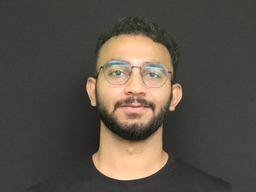PhD Proposal: Dev Tripathy
Location
Physics : 401
Date & Time
April 18, 2025, 9:00 am – 12:00 pm
Description
ADVISOR: Dr. Sebastian Deffner
TITLE: Quantum Information Scrambling: Quantum Reality Of A Classical World
ABSTRACT: Quantum information scrambling—how local quantum information becomes rapidly “mixed” or delocalized in a many-body system—has emerged as a unifying concept bridging fundamental physics, condensed matter, and quantum information. In this PhD proposal, I aim to extend the theory and numerical study of scrambling to real-material models, focusing on models describing correlated insulators, and molecular systems. By linking OTOCs (out-of-time-ordered correlators) to experimentally measurable signals from spectroscopy, I will propose concrete predictions of how strong electron–electron interactions manifest as fast scrambling in experimentally relevant settings. Furthermore, I will develop and employ quasi-probability distributions to distinguish “classical” from “quantum” behavior in both discrete and continuous-variable architectures. These tools will help design better quantum network protocols and shed light on the emergence of classicality from underlying quantum dynamics, ultimately weaving together fundamental insights in quantum chaos, experimental spectroscopy, and quantum information science.
TITLE: Quantum Information Scrambling: Quantum Reality Of A Classical World
ABSTRACT: Quantum information scrambling—how local quantum information becomes rapidly “mixed” or delocalized in a many-body system—has emerged as a unifying concept bridging fundamental physics, condensed matter, and quantum information. In this PhD proposal, I aim to extend the theory and numerical study of scrambling to real-material models, focusing on models describing correlated insulators, and molecular systems. By linking OTOCs (out-of-time-ordered correlators) to experimentally measurable signals from spectroscopy, I will propose concrete predictions of how strong electron–electron interactions manifest as fast scrambling in experimentally relevant settings. Furthermore, I will develop and employ quasi-probability distributions to distinguish “classical” from “quantum” behavior in both discrete and continuous-variable architectures. These tools will help design better quantum network protocols and shed light on the emergence of classicality from underlying quantum dynamics, ultimately weaving together fundamental insights in quantum chaos, experimental spectroscopy, and quantum information science.
